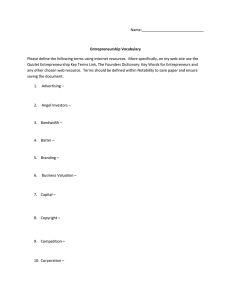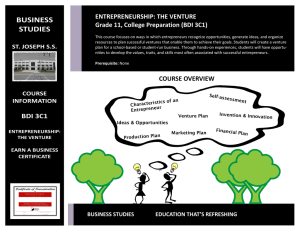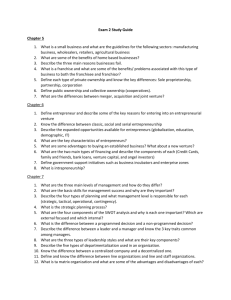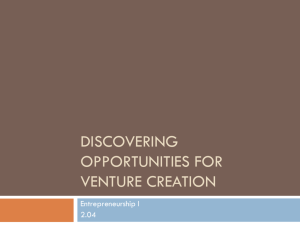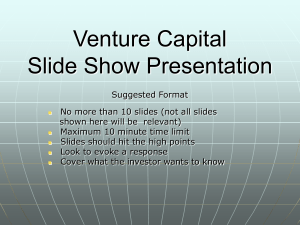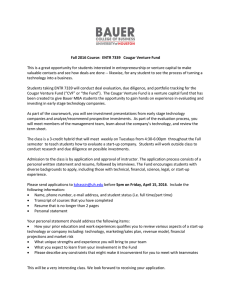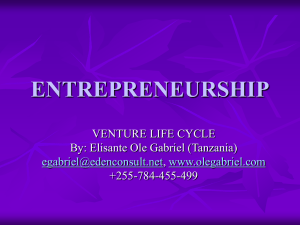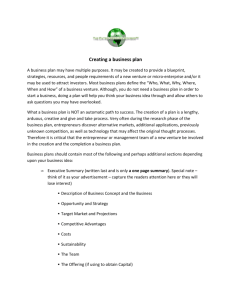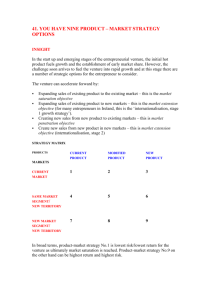ERE 519: “Green Entrepreneurship” Monday 1:50pm-4:50pm, 141 Baker Lab Course Summary
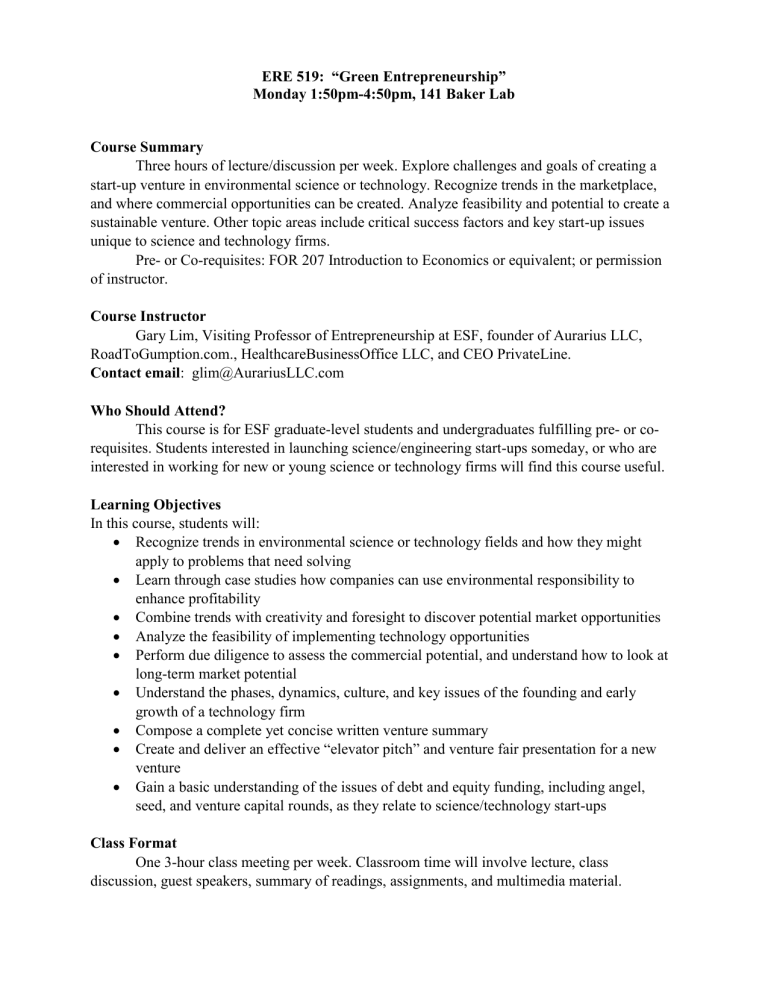
ERE 519: “Green Entrepreneurship”
Monday 1:50pm-4:50pm, 141 Baker Lab
Course Summary
Three hours of lecture/discussion per week. Explore challenges and goals of creating a start-up venture in environmental science or technology. Recognize trends in the marketplace, and where commercial opportunities can be created. Analyze feasibility and potential to create a sustainable venture. Other topic areas include critical success factors and key start-up issues unique to science and technology firms.
Pre- or Co-requisites: FOR 207 Introduction to Economics or equivalent; or permission of instructor.
Course Instructor
Gary Lim, Visiting Professor of Entrepreneurship at ESF, founder of Aurarius LLC,
RoadToGumption.com., HealthcareBusinessOffice LLC, and CEO PrivateLine.
Contact email : glim@AurariusLLC.com
Who Should Attend?
This course is for ESF graduate-level students and undergraduates fulfilling pre- or corequisites. Students interested in launching science/engineering start-ups someday, or who are interested in working for new or young science or technology firms will find this course useful.
Learning Objectives
In this course, students will:
Recognize trends in environmental science or technology fields and how they might apply to problems that need solving
Learn through case studies how companies can use environmental responsibility to enhance profitability
Combine trends with creativity and foresight to discover potential market opportunities
Analyze the feasibility of implementing technology opportunities
Perform due diligence to assess the commercial potential, and understand how to look at long-term market potential
Understand the phases, dynamics, culture, and key issues of the founding and early growth of a technology firm
Compose a complete yet concise written venture summary
Create and deliver an effective “elevator pitch” and venture fair presentation for a new venture
Gain a basic understanding of the issues of debt and equity funding, including angel, seed, and venture capital rounds, as they relate to science/technology start-ups
Class Format
One 3-hour class meeting per week. Classroom time will involve lecture, class discussion, guest speakers, summary of readings, assignments, and multimedia material.
